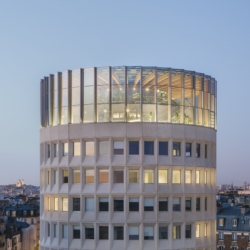September 23, 2025
Hybrid working is now more about when work is done, rather than where
![]() A new report from Owl Labs suggests that the debate over where people work is being replaced by questions about when they work. The firm’s 2025 State of Hybrid Work report argues that the defining issue in workplace flexibility and hybrid working is now time rather than location. The study, based on a survey of 2,000 US workers, claims that almost half of respondents believe they do not have enough flexibility in their working hours. Thirty seven percent said they would turn down a job that did not provide flexible scheduling, an increase compared to last year. Around a quarter said they would find a four day week more attractive than a traditional arrangement, with many indicating they would be willing to take a pay cut in exchange for greater control over their time. On average, workers said they would give up around eight to nine percent of their salary to secure more flexible hours or a reduced working week. (more…)
A new report from Owl Labs suggests that the debate over where people work is being replaced by questions about when they work. The firm’s 2025 State of Hybrid Work report argues that the defining issue in workplace flexibility and hybrid working is now time rather than location. The study, based on a survey of 2,000 US workers, claims that almost half of respondents believe they do not have enough flexibility in their working hours. Thirty seven percent said they would turn down a job that did not provide flexible scheduling, an increase compared to last year. Around a quarter said they would find a four day week more attractive than a traditional arrangement, with many indicating they would be willing to take a pay cut in exchange for greater control over their time. On average, workers said they would give up around eight to nine percent of their salary to secure more flexible hours or a reduced working week. (more…)


































September 17, 2025
People are still powering productivity in the era of AI
by Nick Gold • AI, Comment, Workplace